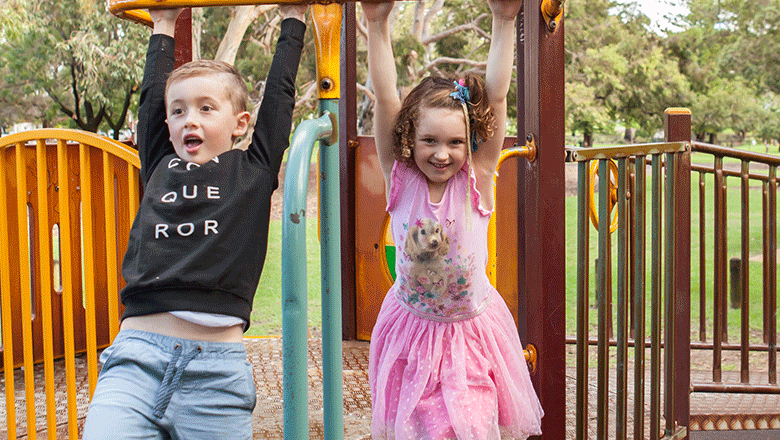Search

News & Events
Key study unveils significant link between hospital admissions and kids with ADHDNew research from The Kids Research Institute Australia has revealed a significant link between kids with severe ADHD and higher rates of early childhood hospital admissions.
News & Events
New study brings hope for preventing lung disease in children with cystic fibrosisResearchers at Perth's Telethon Institute are one step closer to preventing serious lung disease which is the main cause of suffering in cystic fibrosis.
News & Events
No link between testosterone levels in womb and behaviourA project from the Raine Study shows testosterone levels in the womb have little impact on later childhood behavior.
News & Events
Learning more about Australia's childrenThis week more than 7500 government and non-government schools across Australia will start taking part in the world's most comprehensive collection of

News & Events
Help our kids reach their potentialYou're invited to join the Early Childhood Development and Learning Collaboration on Monday 15 August from 7pm to help every child reach their potential.
News & Events
How mums talk influences children’s perspective-taking abilityNew research shows that kids whose mums talk more frequently about others' thoughts tend to be better at taking another's perspective than other children.
News & Events
Children follow in their parent’s behaviour footstepsNew research shows that parents have an important role to play in teaching their children to understand another person's feelings and point of view.
News & Events
A world first for Aussie kids putting Australia's children on the mapIn a world first, 96 per cent of communities in Australia now have vital information about their children's development
News & Events
Breastfeeding Boosts Brain PowerChildren who are mainly breastfed for the first six months (or longer) score significantly higher academically at 10 years of age, especially boys.
News & Events
Parental fear leads to inactive 'cottonwool' kids: studyParental fear leads to inactive 'cottonwool' kids. Children's development and wellbeing are under threat because their parents are fearful of strangers
